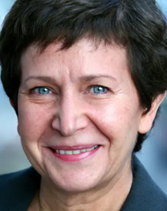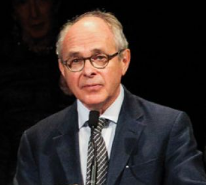MusiQuE Complaints and Appeals Committee
Role of the Complaints and Appeals Committee
MusiQuE’s Complaints and Appeals Committee is tasked to analyse and decide on appeals submitted by institutions that underwent a MusiQuE procedure and consider they have sufficient ground to contest quality judgements expressed in the review report. In cases of complaints, the Committee holds a consultative role throughout the process and is notified by the MusiQuE Board on the final outcome of a complaint procedure. In exceptional situations, presented in section 1.3 of the MusiQuE Complaints and Appeals Procedure, the MusiQuE Board may fully delegate towards the Committee the decision making role within a complaint procedure.
Composition and qualification
The Complaints and Appeals Committee is composed of three voting members nominated by the MusiQuE Office and appointed by the MusiQuE Board for a fixed term of three years, renewable once. The members of the Complaints and Appeals Committee should be experienced in quality assurance processes, possess specialist knowledge pertaining to higher music and related arts education, and, for the period of their appointment, may not participate in MusiQuE reviews. To be appointed to the Complaints and Appeals Committee one should not have been involved in any of MusiQuE’s decision making or executive bodies for a period of five years. Former Committee members may not act as MusiQuE peer reviewers until one year after their mandate came to term, provided that they fulfil all requirements in this regard.
 Dr. Andrée Sursock is Senior Adviser and former Deputy Secretary General (2001-2009), European University Association (EUA). As Deputy Secretary General, she oversaw policy developments and activities related to quality assurance. She directed EUA’s Institutional Evaluation Programme and was involved in the European discussions leading to the Standards and Guidelines for Quality Assurance in European Higher Education (ESG), the European Quality Assurance Register (EQAR) and the launch of the European Quality Assurance Forum (EQAF). She is a member of advisory and administrative boards of universities and QA agencies. Since 2009, she is involved in projects advising universities and governments internationally on a wide range of higher education policies. Her publications have focused on diversity and inclusion, student access and success, university governance and strategy, quality assurance, internationalisation, doctoral education and academic careers, and community engagement. She holds a licence es lettres in political philosophy from Université Panthéon-Sorbonne, and a PhD in anthropology from the University of California, Berkeley.
Dr. Andrée Sursock is Senior Adviser and former Deputy Secretary General (2001-2009), European University Association (EUA). As Deputy Secretary General, she oversaw policy developments and activities related to quality assurance. She directed EUA’s Institutional Evaluation Programme and was involved in the European discussions leading to the Standards and Guidelines for Quality Assurance in European Higher Education (ESG), the European Quality Assurance Register (EQAR) and the launch of the European Quality Assurance Forum (EQAF). She is a member of advisory and administrative boards of universities and QA agencies. Since 2009, she is involved in projects advising universities and governments internationally on a wide range of higher education policies. Her publications have focused on diversity and inclusion, student access and success, university governance and strategy, quality assurance, internationalisation, doctoral education and academic careers, and community engagement. She holds a licence es lettres in political philosophy from Université Panthéon-Sorbonne, and a PhD in anthropology from the University of California, Berkeley.
 Ester Tomasi-Fumics studied law at the University of Vienna. After graduating in 2000, she completed a master’s degree in Information Technology Law at the University of Stockholm. Since 2003, she has been working as a legal advisor for study law at the University of Music and Performing Arts Vienna. From 2005 to 2007, she was project manager of the thematic Erasmus network project “Polifonia” at the Association of European Music Colleges (AEC) in the Netherlands. In 2007, she returned to the University of Music and Performing Arts in Vienna and, as part of her work as a legal advisor, headed other international working groups in the “Polifonia” project, completed in September 2014. She is currently working on development of studies at the mdw and is involved in the IN.TUNE universities alliance working on deep cooperation through new educational formats. She was trained as a MusiQuE peer reviewer in 2019 and served as a secretary in two MusiQuE reviews since then.
Ester Tomasi-Fumics studied law at the University of Vienna. After graduating in 2000, she completed a master’s degree in Information Technology Law at the University of Stockholm. Since 2003, she has been working as a legal advisor for study law at the University of Music and Performing Arts Vienna. From 2005 to 2007, she was project manager of the thematic Erasmus network project “Polifonia” at the Association of European Music Colleges (AEC) in the Netherlands. In 2007, she returned to the University of Music and Performing Arts in Vienna and, as part of her work as a legal advisor, headed other international working groups in the “Polifonia” project, completed in September 2014. She is currently working on development of studies at the mdw and is involved in the IN.TUNE universities alliance working on deep cooperation through new educational formats. She was trained as a MusiQuE peer reviewer in 2019 and served as a secretary in two MusiQuE reviews since then.
 Stefan Delplace is an educationalist, with a professional background in teaching (in-service training, higher and continuous education), who later specialised in Higher Education policies and their interaction with civil society. Stefan studied Commercial Sciences (BA) and has a MA degree in Linguistics from the University of Gent and has acquired wide experience in working in international and intercultural environments. Stefan was the Secretary General of EURASHE for 10 years, (2004-2014), and during this period he represented EURASHE in the Bologna Follow-up Group. In 2014, he was elected a member of the Bureau of the Steering committee for Policy and Practice at the Council of Europe. Stefan in his earlier career specialised in policy towards and activities with partner countries of the EU and contributed to the interaction of higher education and Higher VET, a. o. as an international Expert on Education and Business Cooperation for the European Training Foundation (ETF). Stefan has wide experience in quality assurance and accreditation issues, as a chair and member of review teams, and as the EURASHE delegate in the ‘E4’ Group (with ENQA, EUA, ESU). In this capacity, he contributed to the elaboration and later the revision of the European Standards and Guidelines for QA in 2015. He was also a member of the Executive Board of EQAR, (2012-2014) and held two mandates in the Board of AEQES (QA body of the French Community of Belgium). He has been an Associate of the IAU-AIU (UNESCO, Paris) for several years and was involved as a QA expert outside Europe in capacity building projects in Central and Western Africa (2019-2023).
Stefan Delplace is an educationalist, with a professional background in teaching (in-service training, higher and continuous education), who later specialised in Higher Education policies and their interaction with civil society. Stefan studied Commercial Sciences (BA) and has a MA degree in Linguistics from the University of Gent and has acquired wide experience in working in international and intercultural environments. Stefan was the Secretary General of EURASHE for 10 years, (2004-2014), and during this period he represented EURASHE in the Bologna Follow-up Group. In 2014, he was elected a member of the Bureau of the Steering committee for Policy and Practice at the Council of Europe. Stefan in his earlier career specialised in policy towards and activities with partner countries of the EU and contributed to the interaction of higher education and Higher VET, a. o. as an international Expert on Education and Business Cooperation for the European Training Foundation (ETF). Stefan has wide experience in quality assurance and accreditation issues, as a chair and member of review teams, and as the EURASHE delegate in the ‘E4’ Group (with ENQA, EUA, ESU). In this capacity, he contributed to the elaboration and later the revision of the European Standards and Guidelines for QA in 2015. He was also a member of the Executive Board of EQAR, (2012-2014) and held two mandates in the Board of AEQES (QA body of the French Community of Belgium). He has been an Associate of the IAU-AIU (UNESCO, Paris) for several years and was involved as a QA expert outside Europe in capacity building projects in Central and Western Africa (2019-2023).
Regulation of the Committee
The rules and procedures by which the Complaints and Appeals Committee conducts its work are further detailed in the document MusiQuE Complaints and Appeals Procedures available here.







